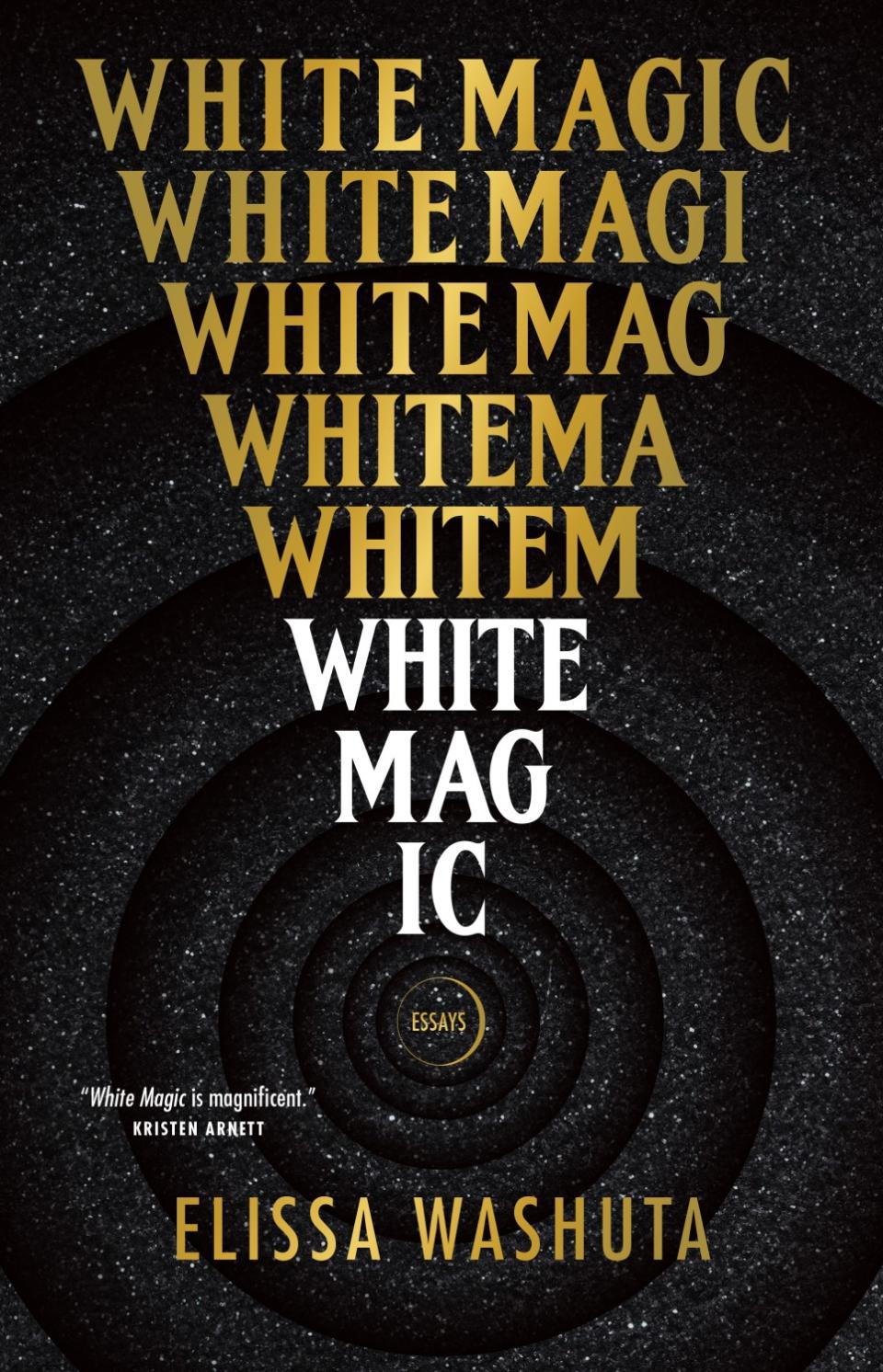Review: A Native essayist's journey through art, magic and pain — and into sobriety

- Oops!Something went wrong.Please try again later.
“Do you think this is a good book? How do you know?” Elissa Washuta asks in one of the footnotes of the essays collected in “White Magic.” “Is it because you compared it to other books? I do want to make you uncomfortable if you’re accustomed to being the ideal audience, your wants prioritized.” Later she asks, “what is your tolerance for ambiguity?”
Nothing is comfortable in these essays, which labor through the muddy waters of intergenerational trauma, imperialism, capitalism and misogyny, using popular culture (“Twin Peaks,” Tarot cards, the video game “Red Dead Redemption 2”) as navigational tools. Even magic has been colonized by settlers, in the form of Twitter horoscopes, Instagram witches and the wellness industry. “I just want a version of the occult that isn’t built on plunder, but I suspect that if we could excise the stolen pieces, there would be nothing left,” she reflects. But this book is not about despair; it’s about sifting through the broken shards of culture, looking for messages to restore one’s spirit.
Washuta is a member of the Cowlitz Indian Tribe, a federally recognized tribe in the Pacific Northwest. “The mortgage lender and the cops don’t treat me as a menace, they think I’m white so they let me live,” she writes. Though Washuta might pass as white, the toxin of racism and colonialism penetrates the ground she walks on, the water that runs through town, and the alcohol she drinks to medicate herself for physical and psychic pain.
Perusing photographs of her ancestors, she realizes: “When I look for myself in this family, I see my image moving from body to body like a restless spirit. I am the woman who does what she does not want to do. I am the man drowning himself in liquor faster than his lungs can drown in dust. I am the child who knows what a body looks like when it’s wounded from the inside out.”
Washuta is at her strongest when grappling with the link between violence and imperialism, telling of how she nearly killed herself by numbing the pain of those patterns with alcohol. “I would not believe the liquor I loved was scouring my insides and wasting my outsides, because it was the only thing helping me forget I wasn’t safe.” Nearly every encounter she has with a man is pulled by an undercurrent of violence. She wakes up to one boyfriend pinching her nose shut and covering her mouth because she was snoring too loudly. And horrifyingly, she reveals: “I am still alive and ambulatory after having been raped more times than I can recall.”
She writes that according to a study in 2018, 94% of Native women in Seattle reported they had been raped or coerced into sex, and of those, 96% had been assaulted by non-Native perpetrators. Though “colonization is not a metaphor for my body,” what she has suffered is inextricable from imperialism. “The violence done to my body was facilitated by colonization ... White men’s violent rule over brown bodies built this young nation.”

Instagram psychologists encourage people to take active ownership of their problems, but “White Magic” rightly recognizes the weight of historical trauma on those living today — violence that is embedded, like a poison, in bodies and land. In “Little Lies,” the first essay of the book, Washuta describes the toll of coal mining on the human body: “In the early 1900s, autopsied lung sections of career miners in Pennsylvania were found to sink in water. Normal lungs float.”
Though “White Magic” is a book of essays, it reads like a single piece, as circuitous and ambiguous as special agent Dale Cooper’s journey through the Black Lodge. Washuta writes that it took her eight years to finish “White Magic” because she was still living in the “long face-off with what my mind has resisted resolving because it feels safe in the pain.” One of the longer essays, “The Spirit Cabinet,” uses the time-jump portals in “Twin Peaks” to unpack the demise of a relationship. Although it is an ambitious exercise, unfortunately the relationship and the ex are supremely boring. Washuta is capable of something more powerful: making sense of hard realities through deep rumination — a sort of magic.
For instance, in “Centerless Universe,” Washuta writes about her time as the writer-in-residence inside a tower of Seattle’s Fremont Bridge. A reporter asks her about the noise: “constant car traffic, boat horns and bridge operator responses, bells signaling openings.” Washuta tells her that “the quietest moments came when traffic stood still, the bells stopped, and the bridge’s pieces soundlessly separated.” The reporter replies, “how interesting … that the largest movement is the quietest.”
In consumer culture, where alcohol abuse is not only accepted but also actively encouraged, Washuta’s recovery is deeply powerful. There is the “pink cloud,” a term used to describe feelings of euphoria in early sobriety. But perhaps “what feels mystical is just unadulterated reality, allowed to gleam with the alcohol haze removed,” Washuta suggests. “Maybe it’s not synchronicity so much as it is sobriety and its unrelenting readiness to attention.” With that knowledge and power behind her, it will be exciting to see what this talented writer turns her attention to next.
Ferri’s most recent book is “Silent Cities: New York.”
This story originally appeared in Los Angeles Times.

